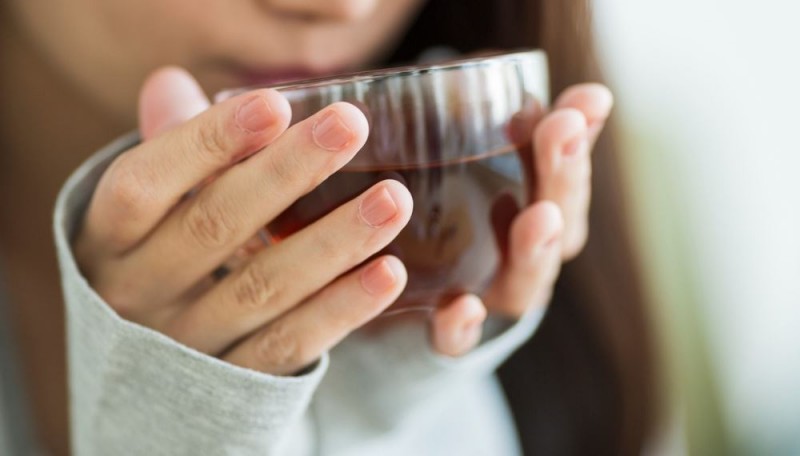
The idea that tea consumption can darken the skin has been a longstanding belief in various cultures. Passed down through generations, this myth has led many individuals to question the effects of their tea-drinking habits on their complexion. In this comprehensive exploration, we will delve into the science behind skin color, the potential effects of tea consumption on skin tone, and the broader health implications associated with different types of tea. By examining these factors in detail, we aim to debunk the myth and provide a nuanced understanding of the relationship between tea and skin color.
Understanding Skin Color:
Before delving into the effects of tea consumption on skin color, it is essential to understand the biological factors that determine skin tone. Human skin color is primarily determined by melanin, a pigment produced by melanocytes in the epidermis. Melanin comes in two forms: eumelanin, which is responsible for brown and black pigments, and pheomelanin, which produces red and yellow pigments. The amount and type of melanin present in the skin determine its color, with individuals possessing varying levels of melanin due to genetic and environmental factors.
Genetics play a significant role in determining an individual's baseline skin color, with variations in genes such as MC1R influencing melanin production and distribution. Additionally, environmental factors such as sun exposure can stimulate melanin production, leading to tanning. However, while external factors like sunlight can temporarily alter skin color, they do not fundamentally change its underlying pigmentation.
Debunking the Myth:
Contrary to popular belief, there is no scientific evidence to support the notion that tea consumption directly impacts skin color. The idea that drinking tea can darken the skin is primarily anecdotal and lacks empirical validation. While some individuals may attribute changes in skin tone to tea consumption, these effects are likely influenced by other factors such as sun exposure, genetics, and overall skincare practices.
One common misconception is that tea can darken lip color, particularly among individuals who consume hot tea regularly. While prolonged exposure to heat may lead to pigmentation on the lips, this effect is not unique to tea consumption and can occur with any hot beverage. Furthermore, the notion that tea can permanently darken the skin or cause significant changes in complexion is unfounded.
Scientific studies examining the relationship between tea consumption and skin color have failed to establish a causal link between the two. Instead, research suggests that skin color is predominantly determined by genetic factors, with minimal influence from dietary habits such as tea consumption. Therefore, individuals need not worry about tea adversely affecting their skin tone, as long as they maintain a balanced diet and skincare routine.
Health Implications of Tea Consumption:
While tea may not directly impact skin color, its consumption can have broader health implications, both positive and negative. Herbal teas, such as black tea, green tea, and yellow tea, are rich in antioxidants and polyphenols, which offer numerous health benefits. These compounds help protect against oxidative stress, inflammation, and various chronic diseases, including cardiovascular disease, cancer, and neurodegenerative disorders.
Furthermore, herbal teas possess detoxifying properties, aiding in the elimination of toxins from the body and supporting overall health and well-being. Regular consumption of herbal teas as part of a balanced diet can contribute to improved immune function, enhanced metabolism, and better skin health.
However, it is essential to distinguish between herbal teas and milk tea, which may contain added sugars and fats. While herbal teas offer health benefits, excessive consumption of milk tea can contribute to health issues such as obesity, diabetes, and cardiovascular disease. The added sugars and fats in milk tea can lead to weight gain, insulin resistance, and elevated blood sugar levels, increasing the risk of chronic diseases.
Additionally, some individuals may experience digestive issues or discomfort from consuming milk tea, particularly those with lactose intolerance or sensitivity to dairy products. Milk tea may disrupt gut microbiota and contribute to gastrointestinal problems such as bloating, gas, and diarrhea. Therefore, individuals should be mindful of their tea-drinking habits and opt for healthier alternatives when possible.
In conclusion, the belief that tea consumption can darken the skin is a myth unsupported by scientific evidence. Skin color is primarily determined by genetic factors, with minimal influence from dietary habits such as tea consumption. While tea offers numerous health benefits, individuals should be mindful of their overall tea-drinking habits and opt for healthier alternatives such as herbal teas.
Furthermore, it is essential to consider the broader health implications of tea consumption, particularly in the context of milk tea and added sugars. While herbal teas provide antioxidants and promote detoxification, excessive consumption of milk tea can contribute to obesity, diabetes, and other chronic diseases. Therefore, individuals should prioritize a balanced diet and lifestyle to maintain optimal health and well-being, including moderation in tea consumption and adherence to healthy skincare practices.
Keep these things in mind while buying hair products
This one change in diet can protect you from serious diseases like heart attack and dementia